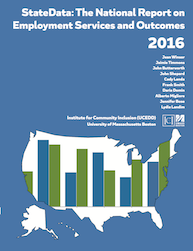StateData: The National Report on Employment Services and Outcomes Through 2016
Download the report here. Access the latest information about employment and economic self-sufficiency for people with intellectual and developmental disabilities. Both national and state-level statistics are included.
